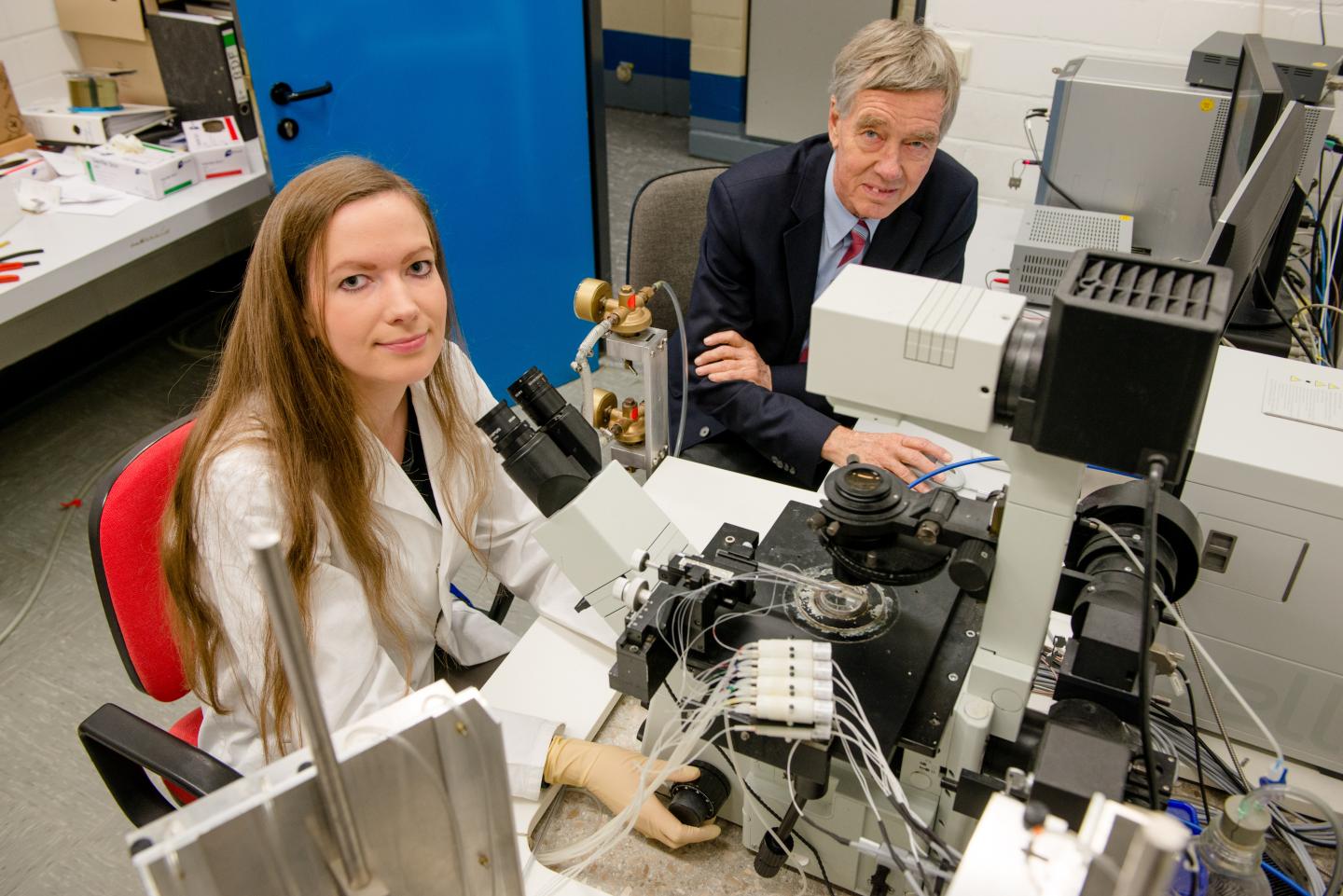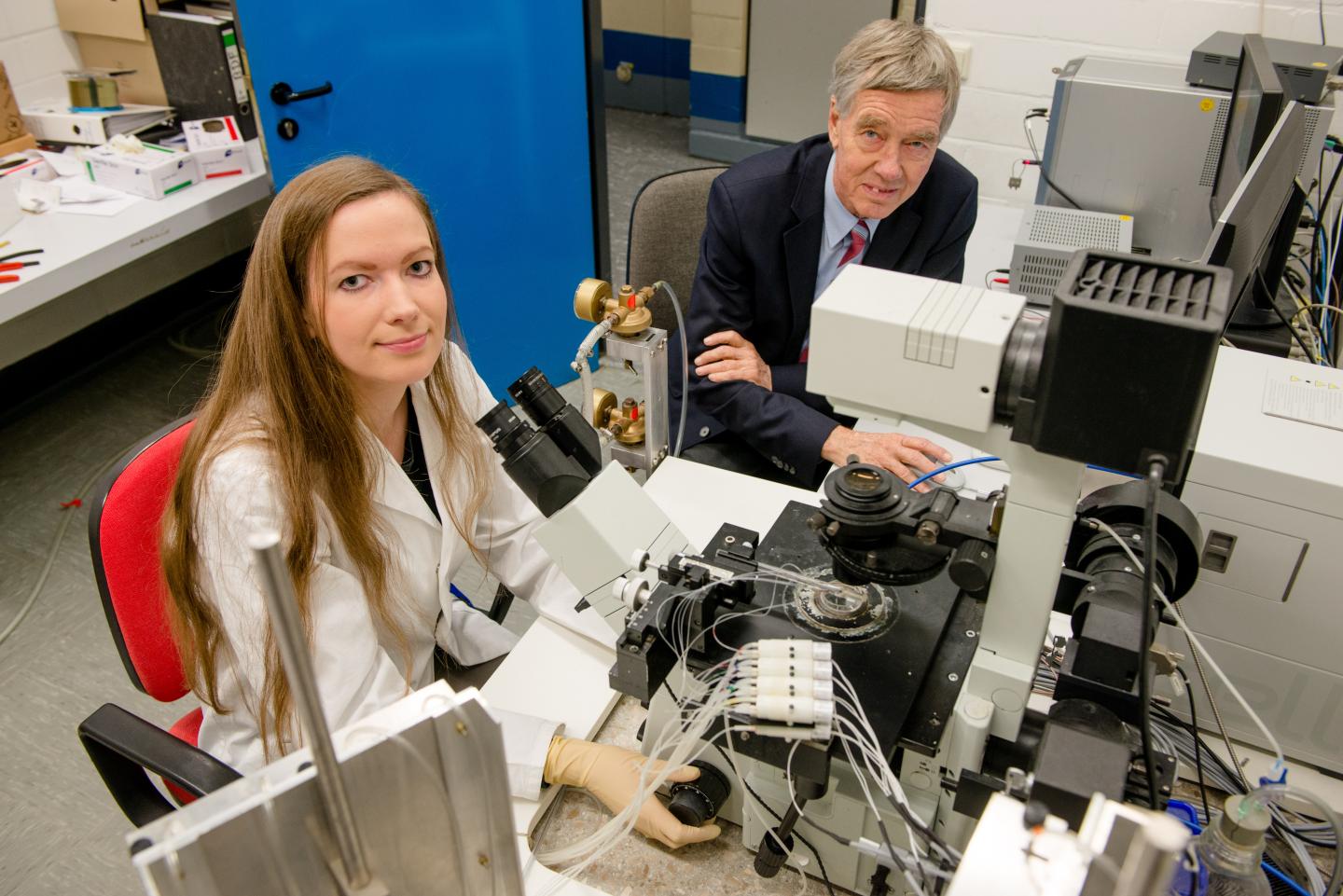
Credit: RUB, Marquard
Growth of colorectal cancer cells can be inhibited with the odorant troenan. This is reported by the research team headed by Prof Dr Dr Dr habil. Hanns Hatt and Dr Lea Weber from Ruhr-Universität Bochum in the journal PLOS ONE. The researchers detected the olfactory receptor OR51B4 in tumour cells taken from the rectum and colon cancer cell lines. They analysed which odorant activates the receptor and in what way the activation affects the cells.
For the purpose of the study, the team from the Department for Cellphysiology in Bochum collaborated with the Department of Molecular GI-Oncology at Ruhr-Universität, headed by Prof Dr Stephan Hahn. The necessary gene sequencing was carried out by the team from the Cologne Center for Genomics.
Floral scent activates receptor
Olfactory receptors had been demonstrated in various healthy as well as cancerous tissues. The Bochum-based researchers have now detected the OR51B4 receptor (upregulated) in colorectal cancer cells. They identified the molecule troenan as activator of OR51B4. It smells of privet, a flowering shrub that is often cultivated in hedges.
In the next step, the researchers treated cancerous cells of the HCT116 cell line and tumour tissue samples with troenan. The result: cell proliferation was slowed down and the cells moved more slowly than previously – an inhibition of tumour growth and metastasis. Moreover, troenan treatment resulted in an increase in apoptosis of cancerous cells. In follow-up experiments with nude mice, which grew the human tumour, the scent effect has been confirmed.
Potential therapy approach
Colorectal cancer is the second most common cancer form in Germany, occurring in more than six per cent of all Germans. The material utilised in the current study were colorectal tumours, which amount to 95 per cent of malign rectal tumours and constitute the most frequent cause of death in colorectal cancer patients. After surgical removal of such tumours, patients have a chance of recovery of 50 per cent. The decisive factor is the stage of the disease in which colorectal cancer is detected. Specific pharmacological treatment is, as yet, not available; only general chemotherapy.
"We assume that our results might pave the way for a new approach for colorectal cancer therapy," says Hanns Hatt. The tumours can often be accessed from the inner cavity of the intestine. "It is therefore conceivable that oral or rectal administration might transport the scent troenan in effective concentrations directly to the tumour. To this end, it will be necessary to conduct clinical studies with patients," continues Hatt.
###
Media Contact
Hanns Hatt
[email protected]
49-234-322-4586
@ruhrunibochum
http://www.ruhr-uni-bochum.de
############
Story Source: Materials provided by Scienmag





